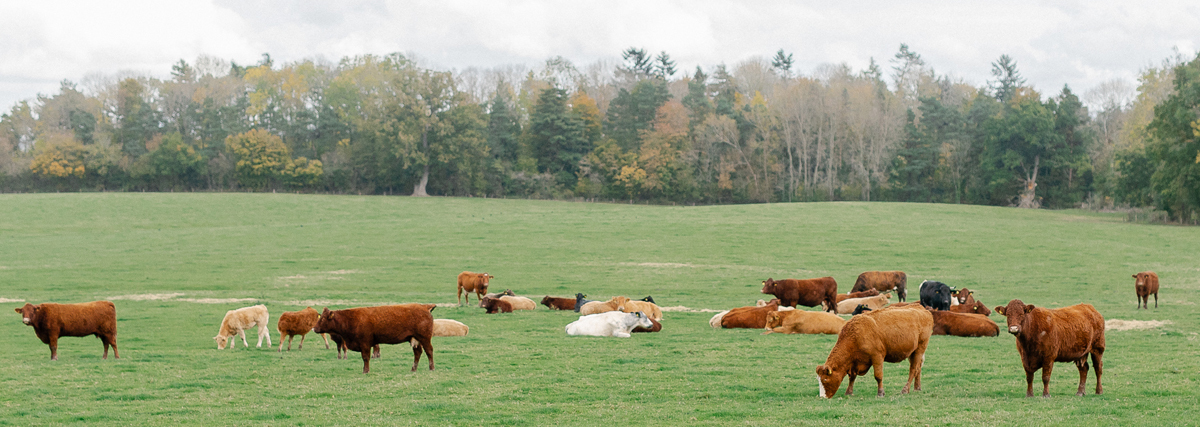Philip Morris & Son is Going Green
At Philip Morris & Son, we are dedicated to helping the planet become a greener place. Our commitment is to do what we can to promote sustainability and ethical practices. A large part of this is how we manage the packaging and delivery of your parcels.
Studies show that 50% of digital buyers state that environmental concerns impact their purchasing decisions and 88% of customers are more likely to be loyal to a company which supports environmental issues. This, as well as our own brand goals, is why we want to help as much as we can to ensure that the world is a better place for the generations ahead.

So, how do we help the planet?
- Lots of our stock comes on large pallets and these routinely get collected and are put back into the pallet network for use elsewhere, ensuring that they aren’t discarded after one use.
- Old metal display stands and metal shelving units get scrapped, ensuring the metal can be easily recycled.
- Cardboard boxes which stock arrives to us in, get reused, shredded or recycled.
- Damaged stock that is not suitable to sell but still usable is donated to charity where appropriate (for example odd pairs of footwear are donated to a charity for people with one foot).
- The mailing bags we dispatch your items in are biodegradable.
- Many of our wellies on sale are made using natural rubber as opposed to chemically manufactured synthetic rubbers.
- We don’t work with companies that promote fast fashion.
- We recycle batteries and coffee pods that are used within the business.
- We encourage staff to walk, cycle or use public transport to get to work where possible rather than drive.
- Our warehouse forklift is electric.
Albert & Maurice
At Philip Morris and Son, we have developed our own brand of clothing, Albert & Maurice. We have created shirts, jumpers, and socks and are still looking to expand our collection. With sustainability in mind, we wanted to find a sustainable source which can be a key ingredient in our products.
- For the Autumn/Winter 2023 season, we released a brand new style of jumper. The Bosbury Crew Neck Jumper and Colwall ¼ Zip Jumpers are the newest to our range and ones that we are very proud of. These jumpers are made using Seawool which is a sustainable yarn with a super soft feel to keep customer satisfaction a priority.
- Seawool is a modern and sustainable fibre made from oyster shells and recycled plastic bottles. Recycled plastic bottles are collected through waste collection programmes and are then cleaned and melted to create long polyester threads and the oyster shells are heated and crushed to form a fine powder. When these are combined they create a yarn with a subtle flecked look forming a stylish finish. Seawool is supersoft to the touch and doesn't itch, ensuring comfortable wear. Alongside this, it’s thermoregulating, breathable and quick drying.
- Perfect for layering, Seawool will keep you warm on the coldest days and is great for wearing over an Albert & Maurice shirt for a stylish combination.

Carbon Neutral Couriers
We use DHL, DPD and Royal Mail to safely deliver your parcels to your front door, and they are all on a mission to become carbon neutral. Read more about how each courier is making the change below:
DHL
- DHL are carbon insetting, which is when an organisation invests in sustainable practices within its own supply chain, rather than carbon offsetting which is where companies use carbon credits to offset their unavoidable greenhouse gas emissions. Offsetting does not qualify as a reduction effort under the science-based target initiative, whereas insetting does.
- DHL is using Sustainable Aviation Fuel (SAF) which is a green alternative to jet fuel. This is produced from alternative feedstock rather than petroleum which is used as ‘normal’ jet fuel. Currently, SAF is in use in San Francisco, East Midlands and Amsterdam airports, and BP and Neste have committed to supply DHL Express with more than 800 million litres of SAF until 2026.
Read more about sustainability at DHL.
Royal Mail
Royal Mail are on a mission to meet Net Zero by 2040! This comprises of 4 main pillars;
- Zero emission deliveries: Despite 85,000 posties walking up to a billion steps a day, around 13% of overall emissions are from Royal Mail’s final mile deliveries. The use of electric vans will help combat this and there are already 5,000 in use!
- Zero emission operations: Domestic and international transport networks represent 70% of their total emissions profile. Royal Mail aims to reduce these by increasing the use of lower emission HGVs and biofuels, reducing the use of air freight, generating and purchasing 100% renewable electricity for buildings and reducing heating fuel through energy efficient measures.
- Making circular happen: Royal Mail aims to transport their operations and behaviours to embrace circularity by enabling reuse models and reducing single-use items. They aim to reduce waste by 25% by 2030 and help customers to embrace their own circular journey via their parcel collection service.
- Collaborating for action: Royal Mail’s size means it can make a huge impact and play a positive role in championing change. They are committed to supporting and educating on the transition to Net Zero. Steps to initiate this are: calling for industry-wide reporting on CO2e per parcel so customers can make an informed decision, collaborating to drive Net Zero through business and policy and by partnering with vehicle manufacturers to support the wider availability of low-emission commercial vehicles.
Read more about sustainability at Royal Mail.
DPD
DPD is committed to sustainability and has implemented various initiatives to reduce its environmental impact on the world. One of their key areas of focus is the reduction of carbon emissions. They have set targets to become the most sustainable delivery company in the industry.
- To achieve this, DPD has invested in alternative fuel vehicles. They have introduced many electric and hybrid vehicles into their fleet, reducing emissions and improving air quality. DPD also utilises innovative technologies such as Predictive Analytics and Dynamic Routing to optimise delivery routes, minimising fuel consumption and reducing carbon emissions.
- In addition to their efforts in vehicle emissions reduction, DPD has implemented various measures to minimise waste and promote recycling practices. They have introduced a packaging recycling initiative, encouraging customers to return packaging materials for reuse or recycling. DPD also promotes the use of sustainable packaging materials and works closely with suppliers to ensure environmentally friendly packaging solutions.
- Furthermore, DPD is dedicated to offsetting its carbon footprint. They have partnered with recognised carbon offsetting organisations to invest in projects that reduce greenhouse gas emissions. These projects include renewable energy initiatives and reforestation efforts, which help to offset the emissions generated by DPD's operations.
- DPD also places a strong emphasis on employee engagement and education regarding sustainability. They provide training programs and resources to raise awareness about environmental issues and encourage employees to adopt sustainable practices both at work and at home.
- DPD is taking significant steps towards sustainability by investing in alternative fuel vehicles, optimising delivery routes, promoting recycling and offsetting carbon emissions. Through these initiatives, DPD is actively working towards reducing its environmental impact and becoming a more sustainable delivery company.
Read more about sustainability at DPD.

Work in progress
Whilst we do what we can to help the environment, there are some things we are still working on & we are always looking for new ways we can help reduce our impact on the planet. Packaging is an area we are trying to persuade our suppliers to become more environmentally friendly in. This takes a lot of work to find a way to get your products to you in pristine condition, whilst also reducing our use of plastics. Rest assured, we don’t re-package items that come to us before they get to you, they stay in the same packaging to reduce waste.
We are taking lots of steps to ensure we contribute to making the world a better place and continue to search for new ways to do this which we can implement. Sustainability and ethical practices are a vital way we can improve the world and reduce carbon emissions which will slow global warming.
